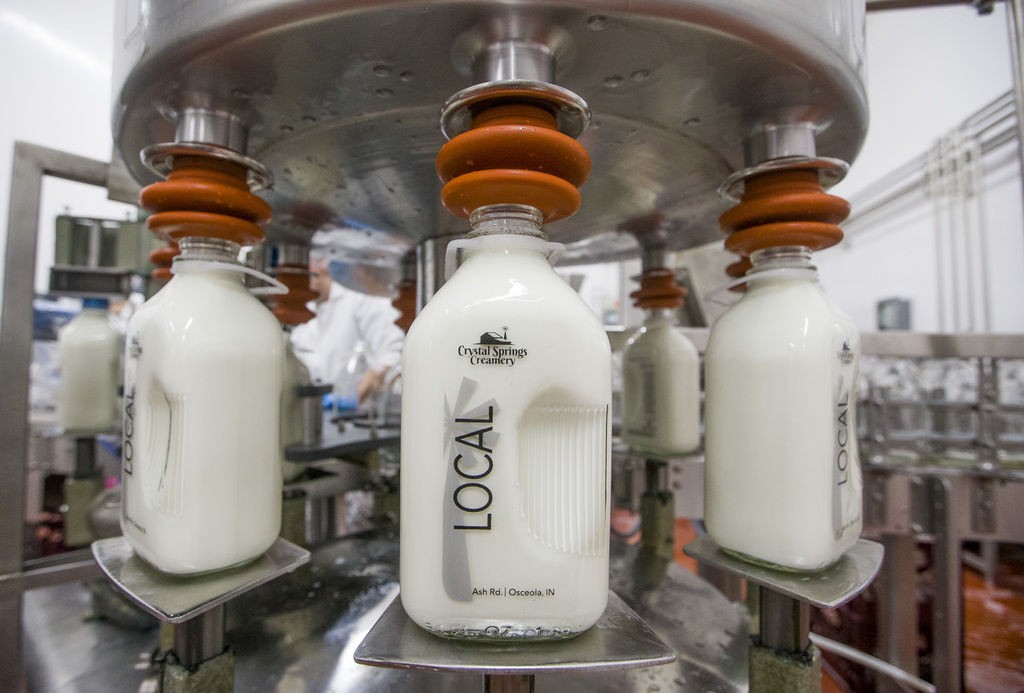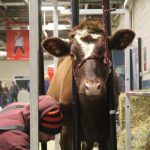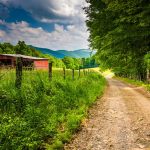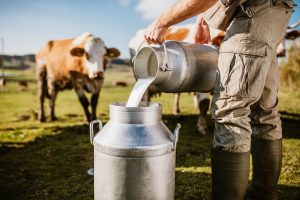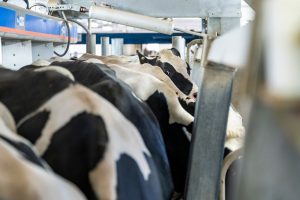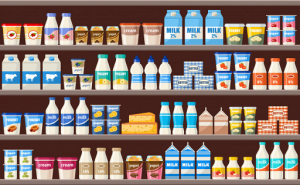
Martin has been a dairy farmer all his life, growing up on a farm in Nappanee and moving in 1996 to his own 600-acre farm located on the western edge of Elkhart County.
The farm at 60020 Ash Road in Osceola previously simply milked the cows and a tanker truck would haul the raw milk away. But in 2017, the family delved into offering fresh cheese curds and yogurt, and by early 2019, Crystal Springs Creamery began offering milk to the public in glass bottles.
But in today’s dairy age, it’d be easy to think Martin was crazy to start up such a business.
Although cheese and yogurt sales are on the up, according to USA Today, the Dairy Farmers of America reported a $1.1 billion decline in traditional milk sales in 2018. The trend follows the serge in popularity of non-dairy alternatives such as almond, oat and soy milk. The increase in demand for non-dairy alternative options was a part of the reasoning behind Dean’s and Borden’s bankruptcy filings.
But for Martin, living and operating a dairy farm is sentimental and part of a lifestyle. He also believes his production is small enough that he is targeting a niche market.
“We haven’t been here long enough to say we’ve been successful, but I think we are tapping into something that wasn’t available before,” he says. “People like the local thing; that’s a huge plus. … You got to stay ahead of it.”
Everything is down to a science at Crystal Springs Creamery and Martin jokes that the dairy business is just a bunch of babysitting.
The 300 mostly Holstein and Jersey cows are milked three times a day at Crystal Springs Creamery and are constantly monitored for their health and milk production. They are fed a mix of hay, alfalfa, corn silage, whole fuzzy cotton seeds, canola for protein and a mineral mix, because, Martin says, “you are what you eat,” and he wants to ensure the best nutrition will in turn transfer to the best dairy product.
The cows are hustled to the milking room where the raw milk is then sent through a 230-foot stainless steel underground pipe into the adjourning production barn where it undergoes a vat pasteurization process at 145 degrees for 30 minutes. The pasteurization process is much milder than standard forms, and Martin says that those who have a lactose allergy are better able to drink milk because of it.
Depending on what day of the week it may be and the farm’s schedule, the dairy can then be turned into cheese curds, butter, yogurt or milk. Two-percent and skim milk is homogenized, while some options, such as the cream milk line, are not homogenized and the fat from the milk is left and separates at the top.
The milk is then bottled in reusable glass. Glass, Martin says, helps keep the milk tasting just as it should be.
“Glass is non-porous so whatever you put in it is going to stay the way it was before you put it in,” he says.
Customers who purchase the milk from the store at the farm or from the Martin’s Super Markets Heritage Square location make a deposit to ensure that there is some incentive to bring the glass bottle back so that it may be reused. At any given time, thousands of half gallon, pint and quart size glass bottles are out being used or waiting to be reused. The worst part about glass, Martin says, is the cleaning. But thanks to a an old bottle washing machine, the process can be quick.
“The turnover is very fast for that,” he says. “You could buy milk today, go home and drink it, bring it back, and if we were still bottling, it’s possible that bottle would go right back into the washer and get refilled the same day.”
Once the bottles are used, customers can drop them off at the Martin’s customer service counter or at the farm directly. Martin says he sees about a 90 percent return rate with the bottles and most customers are simply just swapping out the empty for the new, just as they had in the old days with the milkman.
In addition to the dairy products, the Martin family also sells small home goods such as soaps, candles, jams and knickknacks. Martin says his daughter is at the helm of that product because “there’s only so much food you can sell.” The business is quickly outgrowing the small adjourning barn room where the majority of the sales are sold, and Martin says there has been discussion of expanding into something bigger. But all in all, it’s just another experience to offer in addition to selling the dairy market.
So even with the dairy industry in somewhat of a flux, Martin says he’s found enough of a niche market to make his product attractive — it’s locally made, environmentally friendly with the glass bottle, and it’s just a great product.
